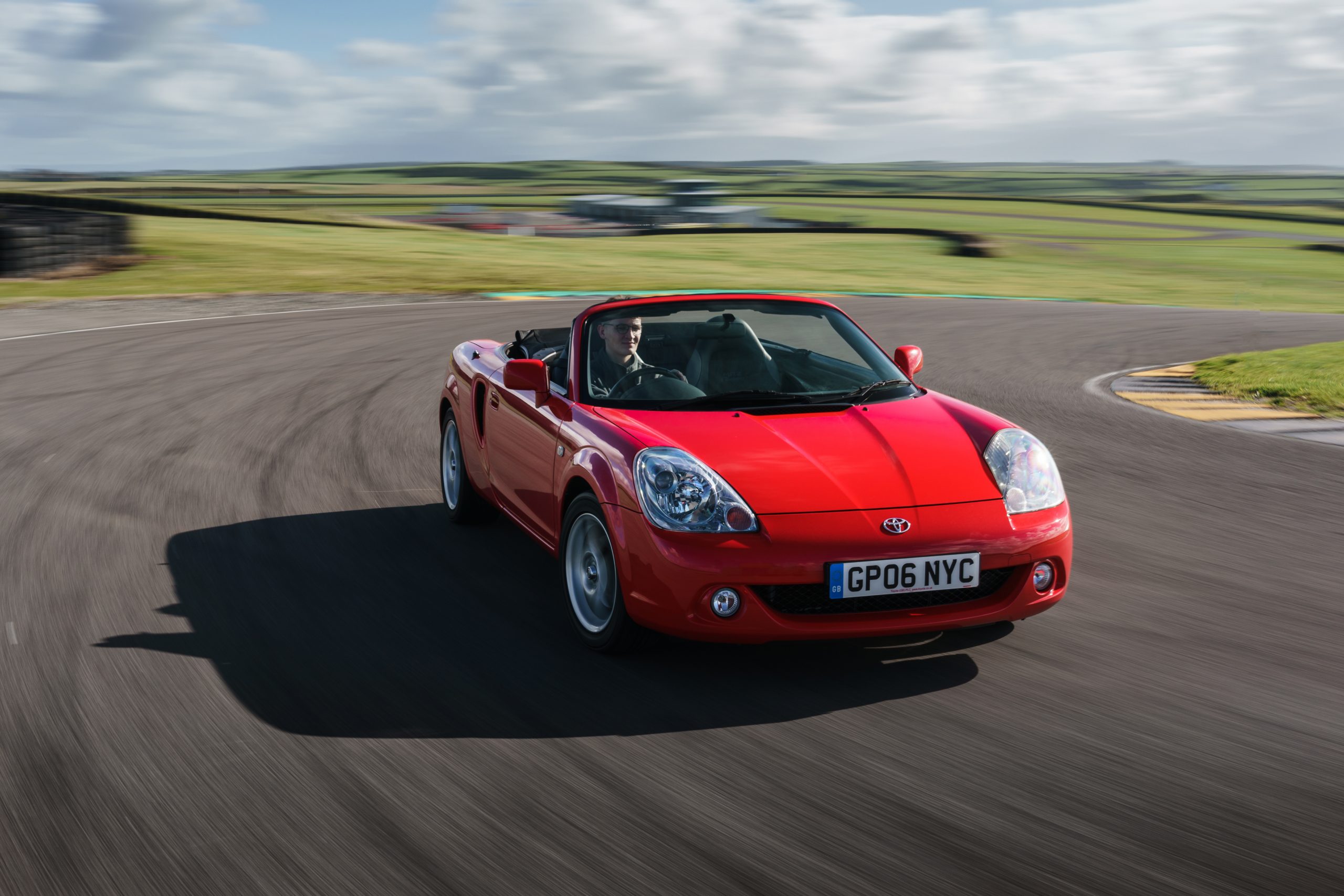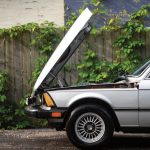“To be honest, I don’t see Europe as being inaccessible… most of the Brexit challenges have been resolved.” Tom Wood, CEO of classified and timed auction juggernauts Car and Classic should know: his company trades across Europe with around 15 per cent of sales (and growing) taking place in the EU.
Car transport specialist Paul Blakey has experienced things a bit differently. “I don’t quote for European business anymore. The costs just aren’t viable for me as a single operator.”
Last year, Hagerty reported on the immediate impact of Brexit in the context of the Covid-19 pandemic and the global rise in online sales of classic and collector cars. It was clear then that the European market and Britain’s relationship with it were in a state of turmoil.
By the start of this year, it seemed we had a clear road ahead. Then, Russia invaded Ukraine and another element of unpredictability was forced upon the European continent. Fuel prices rose, supply chains were disrupted, and events were once again called into question. So, is Wood’s optimistic view indicative of the market as a whole or just reflective of one sector?
These challenges, especially Brexit, have forced many UK businesses to make significant changes to the way they operate. Big international car transport companies, auction houses and event organisers operating between the UK and EU are now used to dealing with the ATA Carnet paperwork that gives them permission to temporarily import cars and have banking facilities to cover the deposit bond that can run in to tens of thousands of pounds. Big dealers have hired staff to deal with the additional paperwork and are used to adding 20 per cent VAT to any imported car under 30 years old. Parts retailers, too, have changed their business models.
“Brexit has brought added bureaucracy, but people are used to it now”
Tom Wood, Car and Classic, auction and classifieds site
Tom Wood says Car and Classic has expanding operations in Italy and France generating a steady flow of cross-border trade within the Eurozone. “Brexit has brought added bureaucracy, but people are used to it now… what it adds to the cost of a £100,000 car isn’t huge. We also saw a bit of a dip in sales after the war started in Ukraine, but before Easter it rose back up to normal levels. People still want to buy and sell cars,” reports Wood.
Some have a different story to tell. “What we’ve realised in the last few years is that we have to rely on ourselves… today almost nothing is made outside the UK,” says Mark Burnett, Managing Director of Burlen Limited, the classic fuel systems specialist that is custodian of SU, Zenith and AMAL carburettors. “The cost of making parts abroad used to be the reason companies went there,” continues Burnett, “but [today] it’s not cheaper.”
That said, Burnett believes the catalyst for bringing manufacturing in-house started well before Brexit and was prompted by demographic challenges. “For us, business is all about people,” he said. “We trade in relatively small numbers of high-quality parts and in the past there were quite a lot of ‘Fred in his shed’ manufacturers making them for us. But what happens when Fred wants to retire? We have to make the parts ourselves.” For Burlen, the investment in 3D printing machines, CNC machines and, critically, training of younger specialists was well underway by the time Brexit and Covid hit.
Other major parts retailers pre-empted Brexit challenges in different ways. Julian Barratt of British classic car parts supplier SNG Barratt has export sales around 80 per cent of their total: “We already had a presence in Europe but have had to invest in building bigger storage and distribution hubs in both France and Holland. Before January 2021 [when the post-Brexit regulations came into force] we massively filled up our stocks in those warehouses. We are used to shipping internationally, so we already knew the weights and dimensions [of our stock] but even so the start of last year caught us out.
“If the paperwork for someone else’s pallet on the same truck was wrong, then the whole lot was impounded.”
Julian Barratt, SNG Barratt, classic car parts supplier
“Our paperwork was good, but if the paperwork for someone else’s pallet on the same truck was wrong, then the whole lot was impounded. We had some shipments taking eight to twelve weeks. Our EU customers weren’t very understanding, seeing Brexit as something we [the UK] have imposed on ourselves.”
SNG Barratt now employs staff at its European sites and has developed a different area of its website specifically for EU customers, with the money they spend going into an EU-based subsidiary. But some companies, especially those smaller than SNG Barratt, needed to start from scratch.
One of those is AH Spares. Kelly Wright of the Austin Healey and Sprite parts specialist, explained the impact of Brexit on its business. “No one in the business had experience [of exporting] so we had to learn whilst going through it which added costs. All countries have different fees and demands so it’s a constant learning curve. All [of our stock items] now must have accurate commodity codes which again took staff a lot of time and we have to input these into the courier’s database for every shipment. With the custom charges added [the cost] is probably more than what the parts themselves cost.”
There are other complexities that only became apparent once the UK had left the EU.
“There were some UK-based suppliers we had been buying from for years,” explains Barratt. “But post-Brexit we found that the country of origin of these parts was abroad. Now each of these is subject to a different duty tariff if we export them to the EU. This often means that the EU customer won’t know exactly how much duty they will have to pay until it arrives. That’s a massive barrier to retail – many just wouldn’t bother and would buy from somewhere else.”
“The big problem is the customs delay which is unpredictable”
Paul Blakey, Bring A Trailer, vehicle transport specialist
The delay in customs processing and increased costs have affected other areas of the industry. “I don’t quote for European business anymore,” is the brutal feedback from Paul Blakey, who is reevaluating the movement of specialist cars to our neighbouring continent. “The costs just aren’t viable for me as a single operator. The paperwork is one thing – export documentation and carnets start at about £500 and can be much more – but the big problem is the customs delay which is unpredictable. One day the paperwork seems to be OK but the next it can lead to a long delay as everything gets checked. To make sure I’m at the destination on a dedicated day [for instance at the start of an event] I have to leave at least a couple of days earlier than I would have done before. That all adds to the cost.
“Then there’s the time taken to get the paperwork stamped: before you leave the UK, at the port of arrival, in the country of origin and then making sure you get a formal receipt that is acceptable to customs. If someone has a road-registered car, I just recommend they drive it over on the Eurotunnel!”
Events are another area that have been hit hard by Brexit red tape. There used to be a thriving network of static car shows throughout Europe and the UK that attracted small traders from all across the area. Brexit regulations make this an almost impossible activity, as Wright explains. “The carnet had to have a list of everything on the van including weight, quantities, cost price etc. [This included] our giveaways such as brochures and business cards… we had to pay a duty on them and get refunded for what we didn’t give out and brought back home.”
It is no wonder that AH Spares’ experience meant that they were one of only a handful of companies I could find who travelled from the UK to this year’s Techno Classica show in Essen, an event that used to have a strong British presence. It works the other way, too: the chances of an EU trader itemising, weighing and pricing a vanload of autojumble parts to bring across to a UK show is highly unlikely. Beaulieu chose not to comment on its expectations until after the Spring Autojumble, but a much-reduced field is expected at that show.
It is clear that the effects of Covid 19 did have an effect on the classic and collector car industry across Europe and the UK, but most of the enduring problems are the result of Brexit and the new regulatory framework that was created by the UK’s divorce from the EU. Bigger companies have invested in staff, facilities and processes to deal with this, but it is the smaller traders who have really suffered. Fundamentally, it’s the classic vehicle owners who have been most affected: those increased costs have to be added to retail prices, and the reduction in UK/EU trade has meant that some parts are harder to source.
Brexit impacts the less well-off owners and enthusiasts most
Garry Wilson, Historic and Classic Vehicles Alliance
Behind the scenes, the industry is lobbying for changes to legislation. The Historic & Classic Vehicles Alliance (HCVA) – of which Hagerty is a founding partner – engages on behalf of British companies. Garry Wilson, CEO of HCVA, believes the red tape is hurting both parties. “The UK is one of the global leaders with the skills and crafts to repair and restore classics vehicles. A reduction in the number of cars and parts crossing the English Channel impacts shows, events and racing series and the effect is reciprocal. This impacts the less well-off owners and enthusiasts most as they will often do the transportation and documentation themselves. The HCVA has a large agenda of actions to try to improve this situation. We have been in contact with the Department for International Trade and this remains a high priority for action.”
Others, such as Barratt, have taken a more pragmatic approach. “We’ve offered some of our more well-established small, UK-based parts suppliers the chance to hold their stock in our European warehouses.” It’s a good idea. In the future, perhaps cooperative groups of traders can support each other. At the same time, the situation could encourage a rise in UK-based parts manufacturing.
For many, however, there’s a feeling that the process of keeping a classic car on the road and enjoying it where you please has just become that bit more difficult and expensive.
Read more
Introducing The Hagerty Power List
Has a Mercedes-Benz 300 SLR “Uhlenhaut coupé” sold for a record £115 million?
There’s no such thing as fast fibre when painting a fibreglass car









